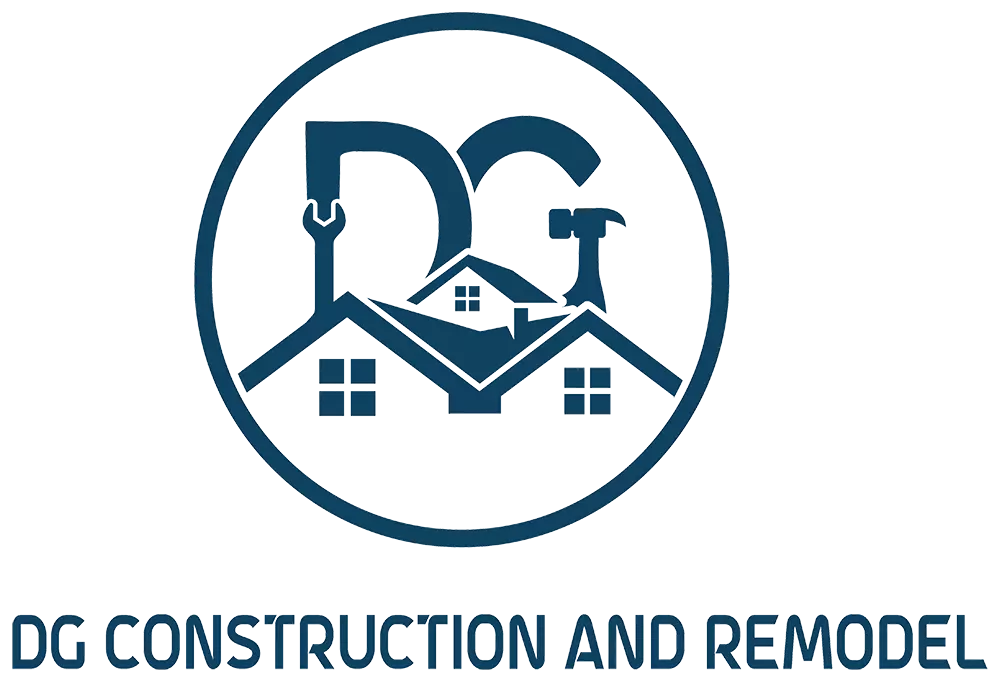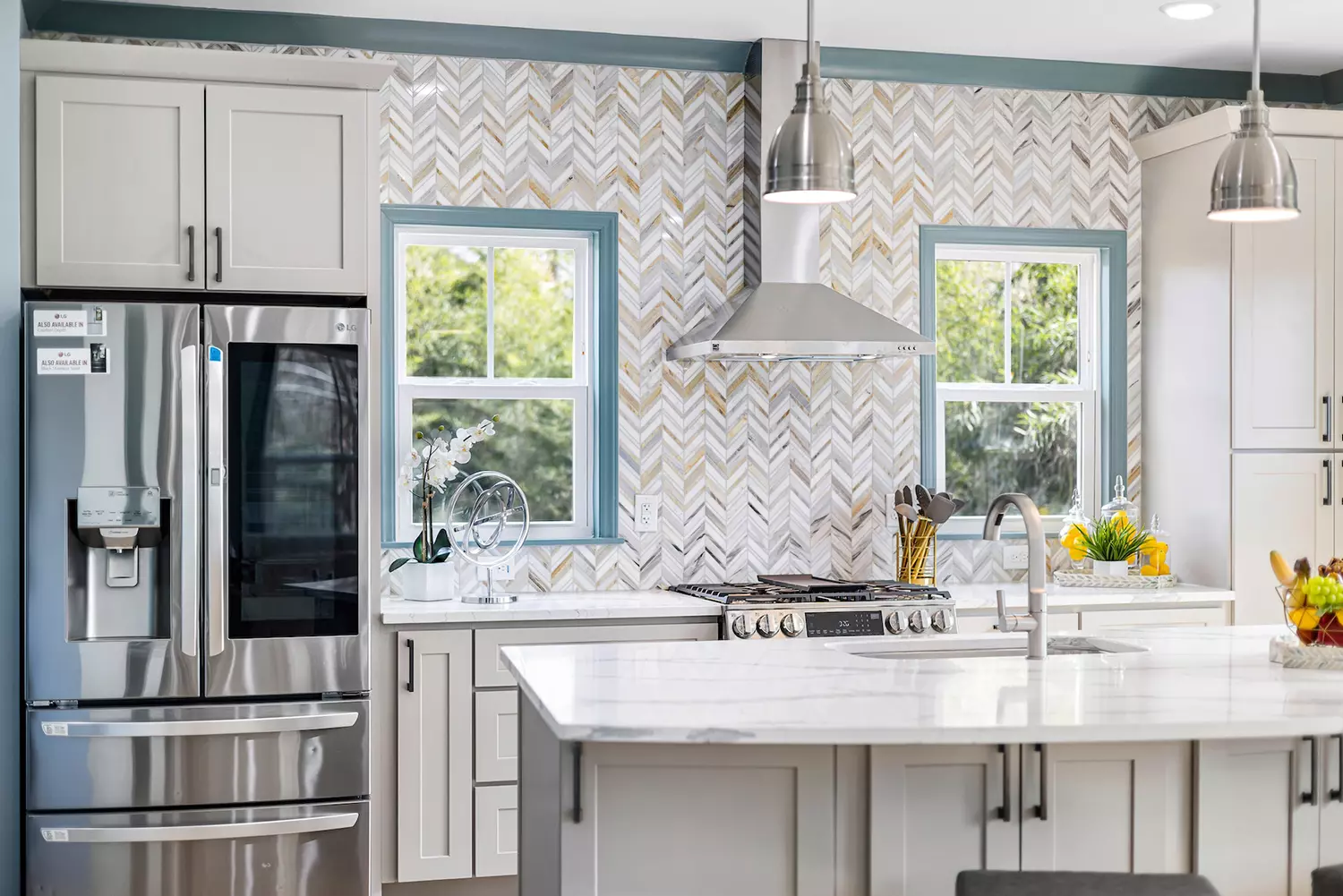1.What is my budget, and what am I willing to spend it on?
One of the most important questions to ask before beginning a kitchen remodel is what your budget is and what you are willing to spend it on. Remodeling a kitchen can be expensive, and costs can quickly add up if you are not careful. The first step is to determine your budget and what you are willing to spend on the project. This will help you prioritize your spending and ensure that you are getting the most value for your money.
When setting a budget for your kitchen remodel, it’s important to consider the cost of materials, labor, and any unexpected expenses that may arise. It’s also important to think about how much you can realistically afford to spend and whether you will need to take out a loan or use credit to finance the project.
Once you have set your budget, you can start to think about where you want to allocate your funds. For example, you may want to prioritize high-quality appliances or custom cabinets. You may also want to consider the cost of labor and whether you are willing to pay for professional installation or do some of the work yourself.
Ultimately, setting a realistic budget and sticking to it is key to ensuring that your kitchen remodel is a success. By prioritizing your spending and making informed decisions about where to allocate your funds, you can create a beautiful, functional kitchen that meets your needs and fits within your budget.
2.What are my goals for my kitchen remodel?
Another important question to ask before beginning a kitchen remodel is what your goals are for the project. Are you looking to create more storage space? Do you want to update the style of your kitchen? Are you hoping to improve the functionality of the space?
Knowing your goals for your kitchen remodel will help you make informed decisions about the design and materials for your remodel.
For example, if your goal is to create more storage space, you may want to prioritize cabinets and shelving in your design. If you want to update the style of your kitchen, you may want to consider modern finishes and lighting. If you are hoping to improve the functionality of the space, you may want to consider the layout and placement of appliances and countertops.
It’s also important to consider your long-term goals for your kitchen remodel. Do you plan to sell your home in the near future? If so, you may want to consider design choices that will appeal to potential buyers, such as neutral finishes and classic styles. If you plan to stay in your home for many years, you may want to prioritize durability and functionality in your design choices.
By considering your goals for your kitchen remodel and your long-term plans for your home, you can create a design that meets your needs and fits your lifestyle.
3.What is my timeline for the kitchen remodel?
Another important question to ask before beginning a kitchen remodel is what your timeline is for the project. Are you hoping to complete the remodel quickly, or are you willing to take more time to get it done right?
Knowing your timeline for your kitchen remodel will help you plan your budget and ensure that you have enough time to complete the project. If you are working with a contractor, it’s important to discuss your timeline with them and make sure that they can accommodate your needs.
It’s also important to consider any events or holidays that may impact your timeline. For example, if you are planning to host a holiday gathering in your home, you may want to make sure that your kitchen remodel is completed in time.
When setting your timeline, it’s important to be realistic about how long the project will take. Depending on the scope of your remodel, it may take several weeks or even months to complete. It’s also important to build in some buffer time in case unexpected delays arise.
Once you have set your timeline, you can start to plan the details of your remodel, such as when materials will be ordered and when installation will begin. By having a clear timeline in place, you can ensure that your project stays on track and that you are able to enjoy your new kitchen as soon as possible.
4.What are the best materials and finishes for my kitchen remodel?
Choosing the right materials and finishes for your kitchen remodel is key to creating a beautiful, functional space that meets your needs. There are a wide variety of materials and finishes available for kitchen remodeling, from high-end custom cabinets to budget-friendly laminate countertops.
When choosing materials and finishes for your kitchen remodel, it’s important to consider your budget, your design goals, and your lifestyle.
For example, if you have young children, you may want to prioritize durable, easy-to-clean materials such as quartz countertops and porcelain tile flooring. If you are looking for a high-end, luxury look, you may want to consider custom cabinetry and high-end finishes such as marble countertops and handcrafted tile backsplashes.
It’s also important to consider the overall style and aesthetic of your home when choosing materials and finishes for your kitchen remodel. You want to make sure that your new kitchen fits seamlessly with the rest of your home and complements your existing decor.
When working with a contractor, it’s important to discuss your options for materials and finishes and get their recommendations based on your budget and design goals. A good contractor will be able to guide you through the selection process and help you choose materials and finishes that meet your needs and fit within your budget.
5.What should I expect during the kitchen remodel process?
Finally, it’s important to have a clear understanding of what to expect during the kitchen remodel process. Remodeling a kitchen can be a complex and time-consuming project, and it’s important to be prepared for what lies ahead.
When working with a contractor, you can expect to have:
- an initial consultation to discuss your design goals and budget,
- followed by a design phase where you will work together to finalize the details of your remodel.
- Once the design is complete, the contractor will begin the construction phase, which may involve demolition, installation, and finishing work.
During the construction phase, it’s important to communicate regularly with your contractor and be prepared for some disruption to your daily routine. You may need to temporarily relocate your kitchen to another area of your home, and there may be some noise and dust associated with the construction process.
However, a good contractor will work to minimize disruption and keep you informed throughout the process. They will also be available to answer any questions you have and address any concerns that arise.
By having a clear understanding of what to expect during the kitchen remodel process, you can be prepared for the journey ahead and enjoy the final result: a beautiful, functional kitchen that meets your needs and fits your lifestyle.
6.How can I ensure that my kitchen remodel stays within budget?
One of the keys to staying within budget during a kitchen remodel is careful planning. Work with your contractor to develop a detailed budget that includes all costs associated with the project, including materials, labor, and permits. Be sure to factor in a contingency budget to account for unexpected expenses.
Once your budget is in place, it’s important to stick to it. Avoid making last-minute changes or additions to the project, as these can quickly add up and blow your budget. Work with your contractor to find creative solutions to stay within budget while still achieving your design goals.
7.What should I look for in a kitchen remodeling contractor?
When choosing a kitchen remodeling contractor, it’s important to look for a company with a strong track record of success and a reputation for quality work. Look for a contractor with experience in kitchen remodeling and a portfolio of completed projects that demonstrate their skill and expertise.
It’s also important to choose a contractor who is licensed, insured, and bonded. This will protect you in the event of any accidents or damages that occur during the project.
Finally, look for a contractor who is responsive, communicative, and easy to work with. You want to choose a contractor who will listen to your needs and work with you to achieve your design goals.
8.How can I make the most of my kitchen remodel?
To make the most of your kitchen remodel, it’s important to prioritize your design goals and make sure that your new kitchen meets your needs and fits your lifestyle. Think carefully about how you use your kitchen and what features are most important to you, such as ample counter space, storage, and seating areas.
It’s also important to choose high-quality materials and finishes that will stand up to the wear and tear of daily use. Invest in durable, easy-to-clean materials such as quartz countertops and porcelain tile flooring.
Finally, don’t overlook the importance of lighting in your new kitchen. A well-designed lighting plan can make a big difference in the look and feel of your space, providing both task lighting for cooking and prep work, as well as ambient lighting for a warm and inviting atmosphere.
9.What permits do I need for a kitchen remodel?
The permits required for a kitchen remodel will vary depending on the scope of the project and your local building codes. In general, you will likely need a building permit for any structural changes to your kitchen, such as removing walls or adding windows.
You may also need electrical and plumbing permits if you are making any changes to your kitchen’s electrical or plumbing systems. Your contractor can help you determine which permits you need and can assist you with the permitting process.
10.How long will my kitchen remodel take?
The timeline for a kitchen remodel will depend on the scope of the project and the materials and finishes you choose. In general, a complete kitchen remodel can take anywhere from 6 to 12 weeks or more.
It’s important to work with your contractor to develop a realistic timeline for your project, taking into account any unexpected delays that may arise. Be prepared to be flexible with your timeline, but also set realistic expectations for when your new kitchen will be completed.
Let’s Get Started on Your Next Project
Questions? Need a Free Quote?









